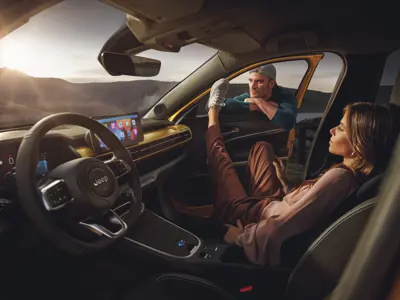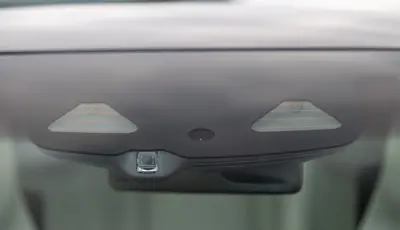Windows
Windows are essential parts of any car, providing visibility, ventilation, protection, and comfort to the driver and passengers.
Last modified: Nov 15, 2025Car windows are classified into different types according to location, function, and design. This article will explore the main types of car windows and their features.
Windshield
The windshield is the car's front window that spans the entire vehicle width. It is made of laminated glass, which consists of two layers of glass bonded together by a plastic interlayer. This type of glass is designed to withstand high impact and prevent shattering into sharp pieces in case of a collision. The windshield protects the occupants from wind, rain, dust, insects, and other debris that may fly into the car.
Wipers
Windshield wipers remove rain, snow, ice, washer fluid, water, or debris from a vehicle's front window. They are powered by an electric motor and have a metal arm with a rubber blade attached to it. The blade swings back and forth over the glass, pushing away anything that might obstruct the driver's vision.
Most EVs have two wipers, but large EVs like the Hummer EV have three.
The speed of the wipers can be adjusted, and most vehicles also have a windscreen washer system that sprays water or antifreeze fluid to help clean the glass.
Typically, the wipers are controlled by stalks, but some are only controlled by screen input.
Many EVs have rain sensors that detect the amount of moisture on the windshield.
Heating
Some models offer a heated windshield as standard or as an option.
Cameras
Today's modern EVs often have one or more cameras installed in the windshield.
These cameras require careful adjustments if the windshield is replaced.
Side Windows
Side windows are the windows on each side of the car, usually located on the doors. They are made of tempered glass, which is a type of glass that is heated and cooled rapidly to increase its strength and resistance to thermal shock. Tempered glass breaks into small, rounded pieces when shattered, which reduces the risk of injury to the occupants.
Side windows can be either fixed or movable. Fixed side windows are permanently attached to the car frame and cannot be opened or closed. Movable side windows can be raised or lowered by using a button, a switch, or a hand crank.
Some side windows may have additional features, such as:
- Tinting or coating to reduce glare, heat, or UV rays from the sun.
- Electric motors or regulators to control the movement of the windows.
- Safety locks or child locks to prevent unauthorized opening or closing of the windows.
- Anti-pinch sensors or mechanisms to prevent injuries caused by trapping fingers or objects in the windows.
Rear Window
The rear window is the window at the back of the car that spans most of the vehicle's width. It is made of tempered glass, similar to side windows. The rear window provides visibility to the rear of the car.
It is not required to have a rear window. Several models do not have a rear window, and some have replaced it with a camera.
Wiper
Some EVs have a wiper on the rear window. It typically includes a washer.
Glass Types
Heat Insulated Glass
Windshields made of insulating glass have a transparent metallic infrared-reflecting coating.
Noise Insulated Glass
For drivers, outside noise is most noticeable when entering a highway tunnel, where the concrete walls reflect sound into the car’s interior. Some manufacturers offer noise-insulated glass as a standard or optional feature.
Unlike the conventional single-layer safety glass used for the sides and rear, this glass features five layers: glass, three layers of film, and then glass again. The middle layer of the three polyvinyl butyral (PVB) films has special acoustic properties that absorb much of the oscillation of the surrounding glass.
Privacy Glass
Privacy glass on cars is a type of glass that has been darkened at the factory by the car manufacturer. It is also known as factory tint. It is different from window tint, a film applied to the glass after it is manufactured. Privacy glass is usually used for the rear and side windows of the car, while the front windows and windshield have clear glass.
The main benefit of privacy glass is to provide more privacy for the passengers and the items inside the car. It can also help reduce glare, deter crime, and keep the car cooler by blocking the sun’s rays. However, unlike some window films, privacy glass does not have high heat rejection or UV protection properties. Privacy glass also cannot be removed unless the glass itself is replaced.
In addition, most EVs look better with privacy glass.








